7. A Dirty Carnival (Yoo Ha, 2006)
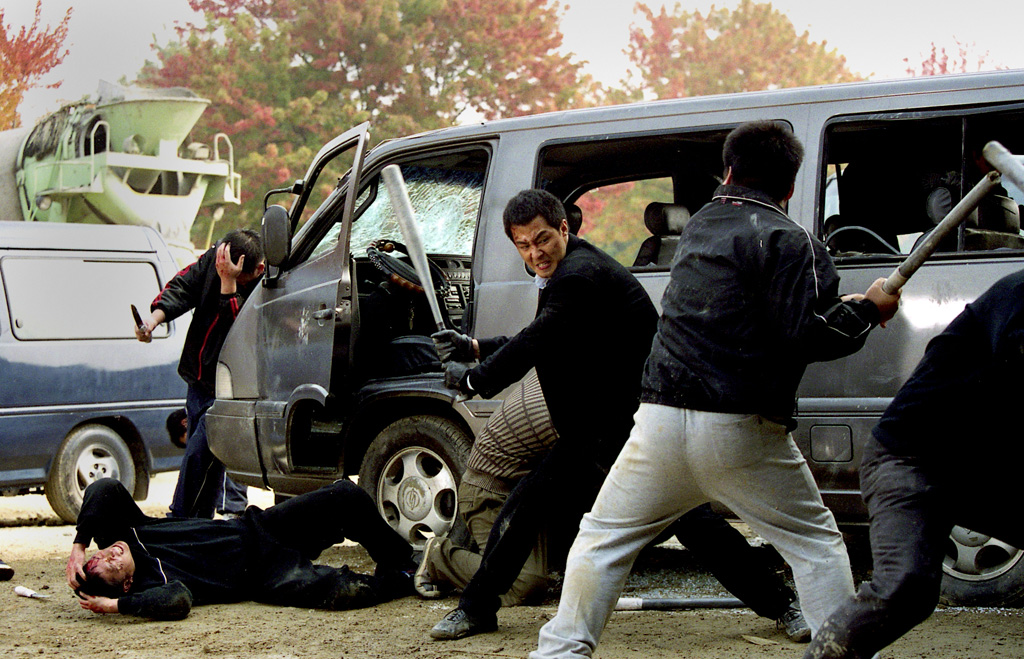
Byung-doo is a low-level gangster who tries to take care of his few subordinates and his sick mother and smaller siblings. His financial situation is awful, with his family being on the threshold of eviction and his direct superior, named Sang-cheol, not caring for his problems.
Having no other choice, he bypasses him and goes directly to the boss of the gang named Hwang, an act that leaves him with a mission to get rid of the district attorney Park, who is on the hunt for his boss.
As his fate seems to change for the better, an old friend named Min-ho resurfaces, who has become a director and in his wish to shoot a gangster film, he wants information from actual professionals. This meeting leads to a second one, with an old flirt of Byung-doo named Hyun-ju.
Yoo Ha directs and pens a film seemingly in the usual motif of the rise and fall of a criminal anti-hero inside a gang. However, he enriches it with plenty of drama and he focuses, in essence, on the repercussions of violence and criminal life in the psychosynthesis of the main character, and the way these two aspects keep him from taking care of his family and living a “normal” life.
Additionally, he avoids creating a character who only seeks out revenge and creating chaos in his path, but instead one who simply tries to improve his life, initially for financial reasons rather than for authority, and lastly for survival.
The film takes a realistic approach toward the crime world presenting its members with all of their flaws, and at the same time, it satirizes the largely failed effort of the film industry to portray the essence of life in organized crime.
Jo In-sung is magnificent as Byung-doo, particularly in the scenes where he attacks his opponents, where he appears truly terrifying. In the more sentimental scenes, his appearance helps him the most to portray his character’s vulnerability. However, his best moment comes when he describes to Min-ho the sentiment of stabbing someone, in a cruelly realistic scene.
6. Nameless Gangster: Rules of the Time (Yoon Jong-bin, 2012)
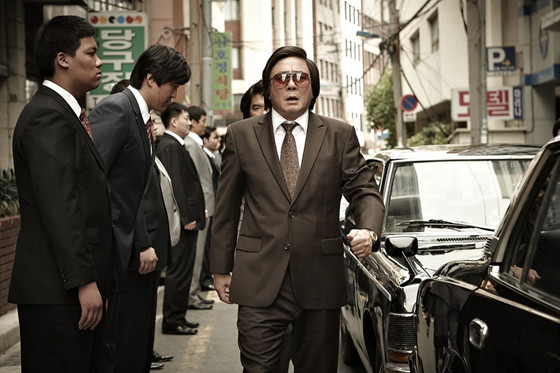
The film is set in the Korean port city of Busan during the reign of organized crime in the 80s and the subsequent declaration of war toward it in the 90s by President Roh Tae-woo.
Choi Ik-hyun is a corrupted Busan customs officer, who is not averse to taking bribes or pilfering goods. Eventually he discovers a shipment of crystal meth, which leads him to kingpin Choi Hyung-bae, who is also a member of the same Choi family clan. Due to that tie and their common interest, the two of them form a peculiar alliance, since they are radically opposite characters, both in appearance and character.
Yoon Jong-bin presents a highly realistic and entertaining depiction of the crime world of the aforementioned decades, and creates a truly masterful crime thriller with constant plots, intrigues, betrayals, and violence.
He bases much of the film upon the differences of the two main characters, with Choi Ik-hyun being annoying, filled with pettiness and ridiculous looking, and Choi Hyung-bae being the exact opposite, and their complex relationship that becomes even worse during the prosecutions in the 90s. Both of the characters, though, are actually evil and prone to walk over dead bodies in order to accomplish their goals.
Choi Min-sik is magnificent as Choi Hyung-bae, capturing both the comical and the serious side of his character, and Ha Jung-woo as Choi Hyung-bae is quite persuasive, to say the least.
5. Mother (Bong Joon-ho, 2009)
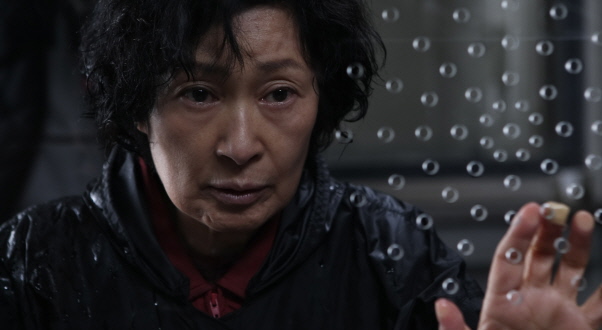
The titular character is a widow who leaves with her mentally deficient son, Do-joon. In order to provide a living for both of them, she sells pharmaceutical herbs and performs acupuncture, despite not having a legal license for the latter.
Her son spends most of his time hanging out with Jin-tae, the “delinquent” of the area, who regularly takes advantage of and causes trouble for him, a tendency that creates many problems for both of the family members.
One day, a high school student is found murdered on a roof of an abandoned house, and the largely incompetent police force arrest Do-joon for the crime. “Mother” has now to face a plethora of financial and social obstacles in order to save her son, as she searches for the true murderer.
Bong Joon-ho did a wonderful job on both the script and the direction. His primary virtues lie with the use of humor that at times, makes the film seem like a black comedy. The analysis of the characters and the development of the plot are also utterly impressive.
Kim Hye-ja is spectacular in a very demanding role as “Mother”, proving in her 70s that talent and competence know no age.
4. The Chaser (Na Hong-jin, 2008)
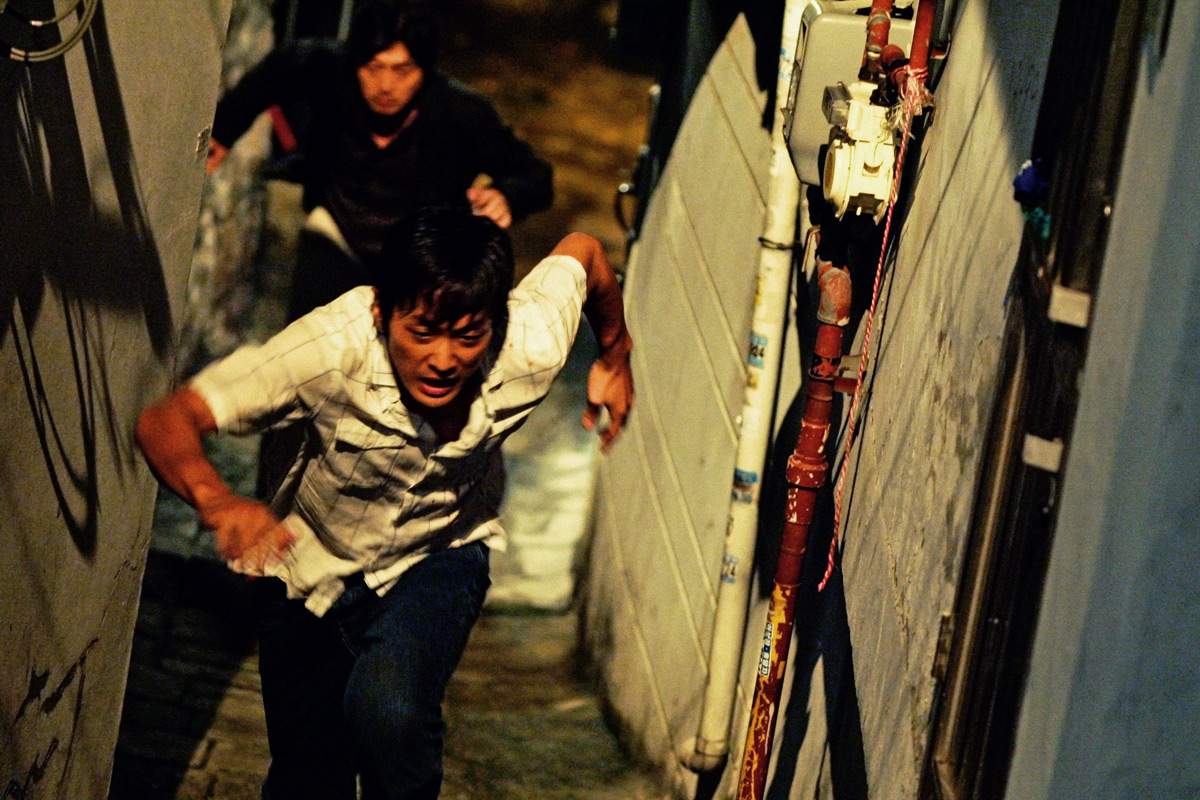
Eom Joong-ho is an ex-cop who currently operates a prostitution ring. Recently, some of his “girls” have mysteriously disappeared, while they still owe him money, putting him in a difficult financial position. Due to the lack of girls, he is forced to send the sick Mi-jin to a customer, despite her strong objections.
However, a little later, he realizes the other two girls that disappeared had a “date” with the same customer, named Je Yeong-min. Assuming the particular individual resells the girls, she orders Mi-jin to inform him of the place they will meet. However, the things she discovers when she arrives there is much more dangerous than what Joong-ho could ever conceive.
Na Hong-jin gave a clear sample of his quality as a filmmaker with his debut film, artfully directing this utterly agonizing thriller. He directs in a way, presenting just as many indications of what is about to come as is needed to keep the spectator tense in all of the title’s duration. He accomplishes that by making clear from the beginning what the protagonists should do in order to solve the case, though presenting very convincing reasons why they do not.
Na Hong-jin has also done a wonderful job in the character’s outline, whose antithesis is depicted on the axis of conscience. There is a total lack of it from the murderer’s part and a gradual disclosure of it on the hunter’s side.
The South Korean did a great in both the direction and the script, which is based on an actual case of a serial killer. Kim Yoon-seok is magnificent as the anti-hero Eom Joong-ho, with his biggest achievement being that he succeeds in emitting true humanity from a character who initially seems utterly despicable.
The performance by Ha Jung-woo as Je Yeong-min is at least equal, as he portrays a bloodthirsty, impenitent psychopath in one of the best and most chilling renditions by an evil character.
3. Memories of Murder (Bong Joon-ho, 2003)
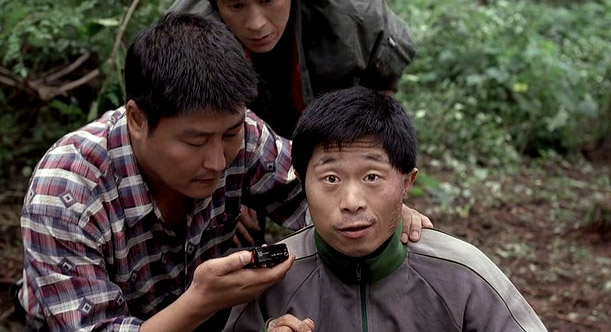
Based on the true incident of the first serial killer ever to appear in South Korea, the film begins in October 1986, when the deceased body of a raped woman is discovered in a ditch next to a field. A little later, another similar body is discovered. Two local detectives, Park Doo-man and Cho Yong-koo, are responsible for the investigation, but are obviously out of their depth, as is the whole police department since the events are unprecedented in the area.
Detective Seo Tae-yoon arrives from Seoul to assist in the case, who proceeds on vitiating the claims of the aforementioned detectives for the perpetrator, thus changing the whole course of the investigation.
Bong Joon-ho, who directs and writes, studied the facts thoroughly and presented a film that stays very close to the actual case and the turbulent times South Korea was experiencing at the time. This is largely benefited by the gorgeous cinematography, which presents realistic images of rare beauty from the life in South Korea in the 80s.
Furthermore, he focuses on the antithesis between the simpletons of the local department and the “intellectual” from the city, which is depicted with humor, without depriving the subject from its seriousness.
Song Kang-ho as Park Doo-man proves once more why he is considered one of the top actors in the country, with his talent of being entertaining while cursing or hitting people becoming largely evident here.
Kim Sang-kyung is also great as Seo Tae-yoon, with his biggest achievement being the metamorphosis from an individual who is “smooth” and detached from the tactics of his colleagues, to a thing much worse, due to his growing despair for his continuous failure.
2. Oldboy (Park Chan-wook, 2003)
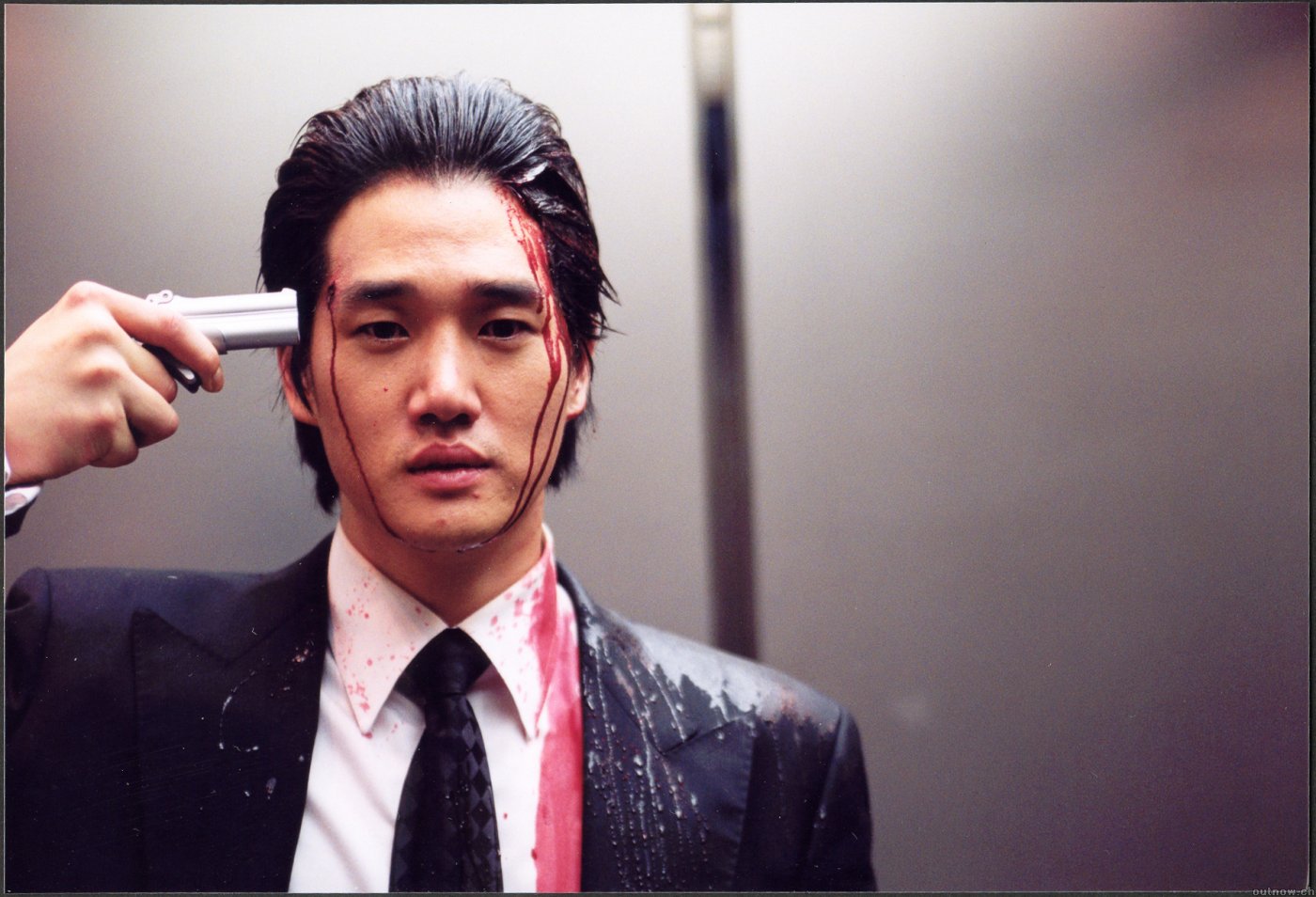
This second installment of Park Chan-wook’s trilogy regarding revenge is undoubtedly the film that turned global interest toward Korean cinema.
Based on the homonymous Japanese manga, the film focuses on Dae-su, a family man, who, for no apparent reason, is abducted and forced to live in the same room for 15 years. When he is unexpectedly released, he is set on extracting revenge, although the sole evidence in his possession is the fact that he must accomplish this in five days.
Park Chan-wook directs an elegy of revenge that touches on the depth of an ancient tragedy through the humiliation and ensuing catharsis that eventually lead to repentance.
Choi Min-sik as Dae-su gives one of the greatest performances of his career and the overall acting is sublime, as is the direction, scriptwriting, and cinematography, in one of the most thrilling films of international cinema.
1. I Saw the Devil (2010, Kim Jee-woon)
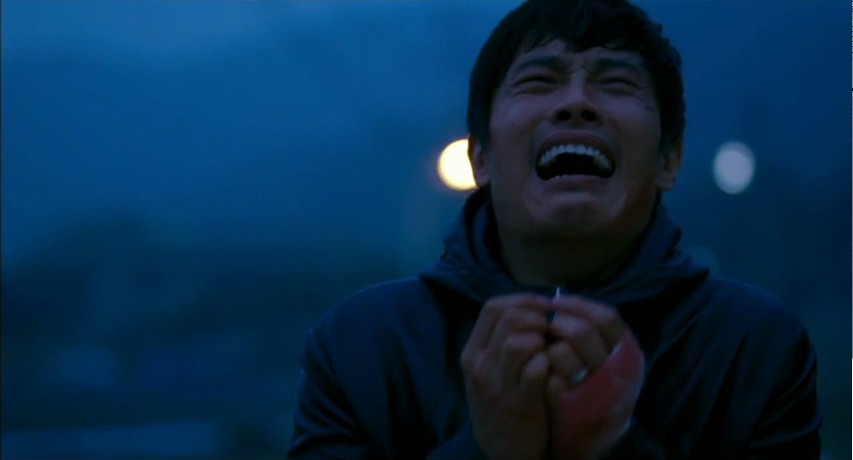
Kyung-chu, a sadistic murderer, assassinates special agent Soo-hyun’s fiance, Joo-yun. A few days later, the police discover parts of her dismembered body in a river. Jang, the police chief and father of the girl, gives Soo-hyun a list with suspects, and he proceeds in investigating the crime in order to exact revenge.
Kim Jee-woon presents another grotesque masterpiece, where revenge is the driving force for almost everything occurring on screen. Initially the film looks like a battle between good and evil, but as the revenge procedure extends, the borders between the two stop being visible, thus resulting in the spectator doubting who the evil one actually is.
Furthermore, as Soo-hyun initially seems justified in his actions, he manages to make acceptable a number of acts that would regularly be considered as utterly appalling.
He reproaches violence and sadism by presenting them in utterly graphic fashion, thus transforming the film in exactly what he reproaches. This technique is not original, though it is the first time that it is stretched to such extremes.
Lee Byung-hun as Soo-hyun and Choi Min-sik as Kyung-chu give a true acting recital in one of the most impressive one-on-one duels ever to appear in cinema.
“I Saw the Devil” includes sublime direction and scriptwriting, artful cinematography and editing, and one of the most shocking endings ever to appear on film.
Author Bio: Panos Kotzathanasis is a film critic who focuses on the cinema of East Asia. He enjoys films from all genres, although he is a big fan of exploitation. You can follow him on Facebook or Twitter.